D-BSSE News
All stories that have been tagged with External
Inauguration of global Centre for Pathogen Bioinformatics
External

Guided by D-BSSE researchers Niko Beerenwinkel and Tanja Stadler and other steering group members from the University of Basel, the Swiss Institute of Bioinformatics (SIB) opens a dedicated centre for computational pathogen research and surveillance. The new Centre for Pathogen Bioinformatics offers expertise and services to the Swiss federal authorities and global research community, contributing to global pandemic preparedness and response in realtime.
Na Cai becoming D-BSSE faculty member
External
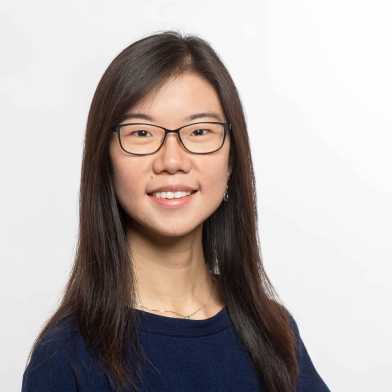
At the last meeting of the ETH Executive Board, Na Cai, currently Principal Investigator at Helmholtz Pioneer Campus and at the Technical University of Munich, Germany, was appointed as Tenure Track Assistant Professor of Computational Medical Genomics at the D-BSSE. She will strengthen the department’s expertise in medical genomics and bioinformatics. A warm welcome, Na!
Welcome to our new Master students starting fall semester 2024!
External
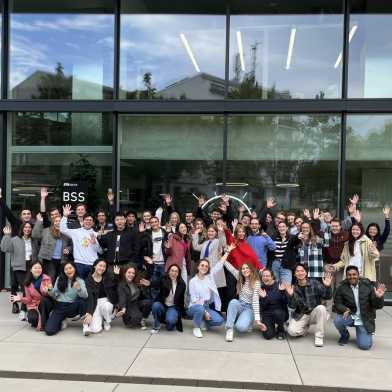
A warm welcome to our 71 new Master students at D-BSSE in Basel, enrolled in our Biotechnology and Computational Biology & Bioinformatics Master-level programmes. Have a great start!!!
Spinoff company BioVersys announces investment in clinical development of its lead asset BV100 in China
External
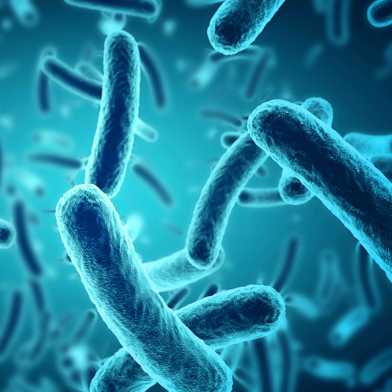
On 11 September, D-BSSE spinoff BioVersys announces the investment of US$6m by investment firm Guangzhou-Israel Biotechnology Fund. This investment aligns with BioVersys’ strategic decision to expand its BV100 clinical programme in China. BV100 is a novel formulation of rifabutin suitable for intravenous administration which is targeting specific Acinetobacter baumannii - bacteria, an opportunistic pathogen in humans, typically infecting critically ill and immunocompromised patients.
Tanja Stadler receives the Luigi Luca Cavalli-Sforza Prize
External
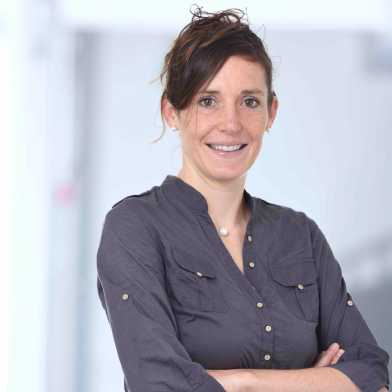
Honouring her “extensive contribution to the field of evolution which open new lines of investigation”, Tanja Stadler, Head of the Computational Evolution group, is being awarded the Luigi Luca Cavalli-Sforza Prize by the Italian Society of Evolutionary Biology SIBE. Congratulations, Tanja!
Upcoming Event: Next-gen Seminar
External
On 30 September, the next public seminar organised by the ETH Zurich-Roche partnership Next-gen Bioengineers will take place at the ETH Basel premises. Professor Bart Deplancke from the Laboratory of Systems Biology and Genetics, EPF Lausanne, will talk about 'Advancing biology through single cell phenomics'. The seminar will start at 11:30am and will be live-streamed.
Our Professor of Practice now in new role
External
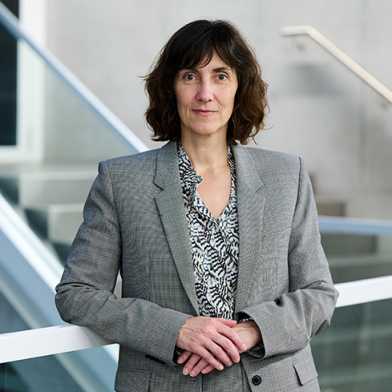
Sylke Poehling, first Professor of Practice at D-BSSE, Senior Vice President for Therapeutic Modalities at Roche Pharma Research & Early Development (pRED), becomes the Chief Executive Officer of Spark Therapeutics, a Philadelphia-based company specialised in developing gene therapies. Spark is a member of the Roche group. Congratulations, Sylke!
Upcoming Event: ETM 'Bench meets Bedside' seminar
External
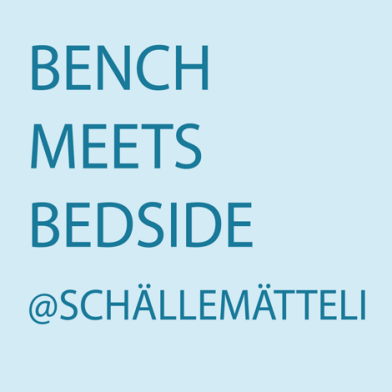
On 18 September, the next 'Bench meets Bedside' seminar organised by the Engineering Translational Medicine (ETM) initiative will take place on Campus Schällemätteli. Speakers include Viola Heinzelmann-Schwarz (USB/UniBas), Julia Bielicki (UKBB) and Mustafa Khammash (ETH/D-BSSE). This seminar series builds a platform for researchers and clinicians to connect and collaborate. Please register.
Daniel Müller becomes Co-Director of BRCCH
External
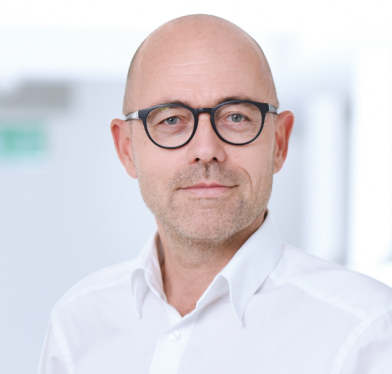
Succeeding Sai Reddy, Daniel Müller is now Co-Director of the Basel Research Centre for Child Health (BRCCH). Together with Georg Holländer, also professor at D-BSSE, he will help guide the strategic orientation and initiatives of the 2018-founded BRCCH as it transitions to a digital health hub in Basel.
Preventing cancer cells from colonising the liver
External
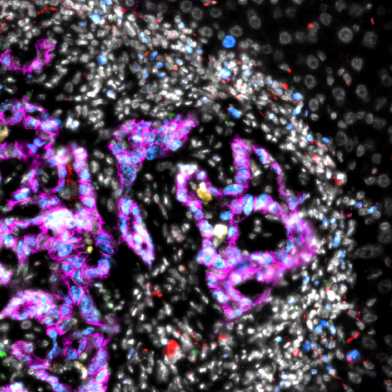
Researchers around Andreas Moor, head of the Systems Physiology group, have uncovered how colorectal cancer cells colonise the liver. Their findings could open up new ways to suppress this process in the future.
Key driver for epithelial cancer development identified
External
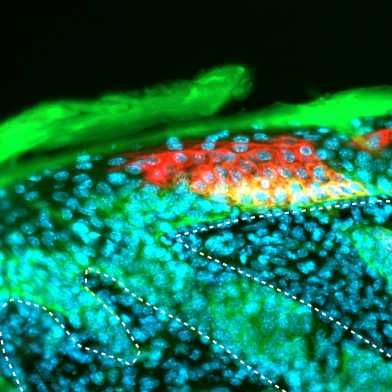
A distinct signalling pathway mediated by a molecule called TNF-α drives the transformation of epithelial cells into aggressive tumour cells. During cancer progression, cells activate their own TNF-α programme and become invasive. This finding could help to improve early detection and treatment of patients with cancers in skin, oesophagus, bladder, or colon, as UZH researchers in collaboration with the group of Andreas Moor state in a study published by Nature.
Novel computational approach to identify intracellular reaction processes
External
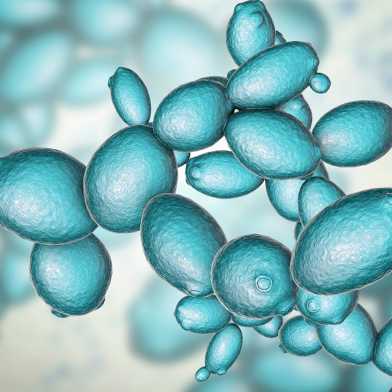
Intracellular processes, steered by the gene expression system, are high-dimensional and often intrinsically noisy. Advanced computational analysis of single-cell time-lapse microscopy data has the potential to unravel complex molecular networks within cells. In Nature Communications, researchers from the group of Mustafa Khammash present a novel way to decompose a large-scale network identification problem into several smaller, manageable subproblems.
Michael Moor becoming D-BSSE faculty member
External
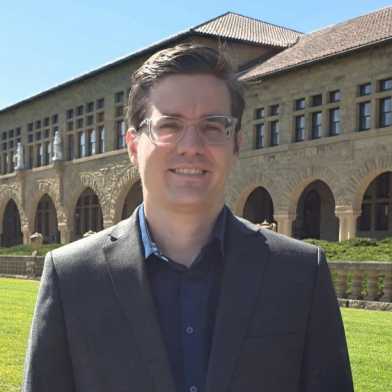
At the last meeting of the ETH Executive Board, Michael Moor, currently Postdoctoral Scholar at Stanford University, USA, was appointed as Tenure Track Assistant Professor of Medical AI at the D-BSSE. A warm welcome, Michael!
Tanja Stadler elected EMBO member
External
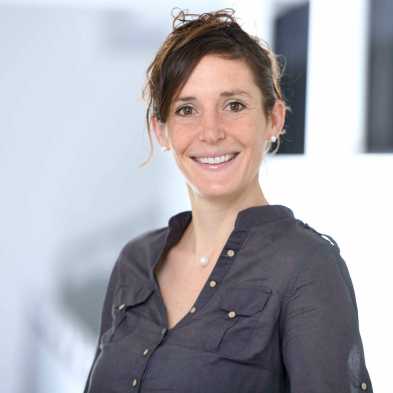
Congratulations to Tanja Stadler, head of the Computational Evolution Group at D-BSSE, on being elected member of the European Molecular Biology Organisation (EMBO). The growing EMBO network promotes excellence in life sciences and shapes their direction in research, fosters the careers of young scientists and strengthens the research communities in Europe and beyond. This year, EMBO celebrates its 60th anniversary.
Unveiling the mechanisms underlying human cell diversity
External
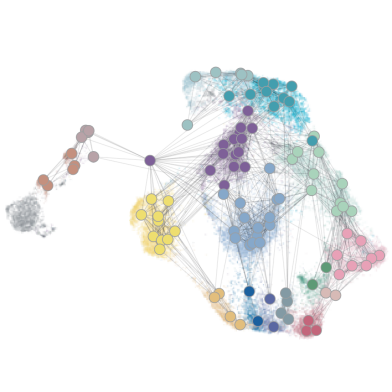
How do cells with the same genetic material differentiate into diverse cell types during early embryonic development? In a study in Nature Neuroscience led by the Quantitative Developmental Biology group of Barbara Treutlein in collaboration with colleagues from the Roche Institute of Human Biology, scientists explore at single-cell level the role of histones in serving as on-/off-switches for gene expression during cell development and differentiation in brain organoids.
Basel honours Prisca Liberal with prestigious Science Prize
External
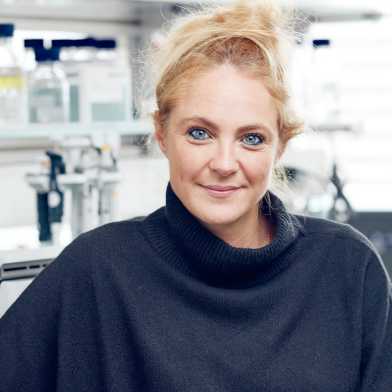
The City of Basel awarded this year’s Science Prize to Prisca Liberali, Head of the Molecular Systems lab at D-BSSE and group leader at the University of Basel, in recognition of her groundbreaking research on the collective properties of developmental and regenerative systems. The award, valued CHF 20’000, is presented annually to outstanding researchers based in Basel.
Spinoff Myria Biosciences announces closing of pre-seed funding round
External
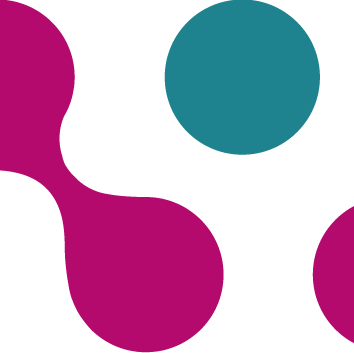
Myria Biosciences AG, a Basel-based pioneer in drug discovery using synthetic biology and AI originating from the D-BSSE, today announces the closing of its pre-seed round. The new funding will enable Myria to expand its scientific team, kickstart its internal drug candidate pipeline, and forge additional partnerships with leading pharmaceutical companies.
Launch of global research centre for immune engineering advancing child and adolescent health
External
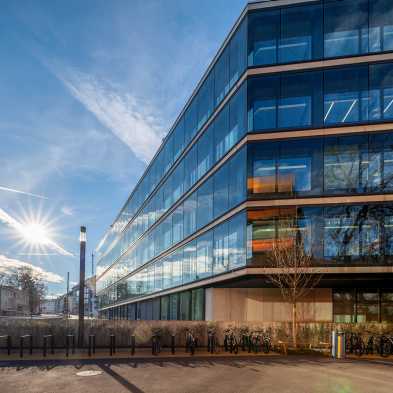
On 18 June, a new independent research institute, the Botnar Institute of Immune Engineering (BIIE) is launching in Basel, Switzerland. The BIIE is a newly founded non-profit research organisation focused on developing computational tools and immune-based translational solutions for the diagnosis, treatment and prevention of disease in children and adolescents.
Meet Gisbert Schneider who becomes faculty member at D-BSSE
External
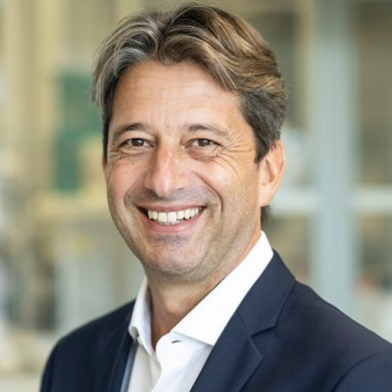
As of 1 June, ETH-professor and Biochemist/Bioinformatician Gisbert Schneider, is affiliated with D-BSSE. Heading the Computer-Assisted Drug Design group, also some of his lab members moved from the Institute of Pharmaceutical Sciences at D-CHAB to Basel. Gisbert’s research activities focus on the development and application of adaptive intelligent systems for molecular design and drug discovery. A warm welcome, Gisbert!
Congratulations to our 2023 graduates!
External
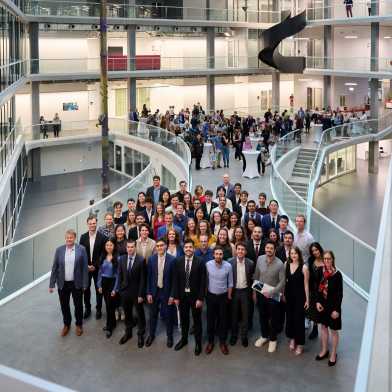
On 24 May, 22 Biotechnology and 33 CBB (Computational Biology and Bioinformatics) students celebrated their graduation together with families and friends, in total some 180 guests. Special congrats go to this year’s awardees of the ETH Medals for outstanding master’s thesis and the Willi Studer Prize!
Book publication on the great potential of analysing data from sequenced genomes
External
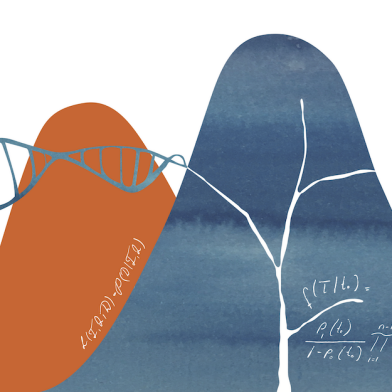
Tanja Stadler, head of the Computational Evolution group, and members of her team published a book for students and researchers who aim to analyse genomic sequence data or develop statistical and computational approaches for such analyses. Entitled “Decoding Genomes: From Sequences to Phylodynamics”, the book focusses on how to uncover information about past evolutionary and population dynamic processes based on genomic samples.
Opening ceremony of the BSS building: Celebrating the new Basel location of ETH Zurich
External
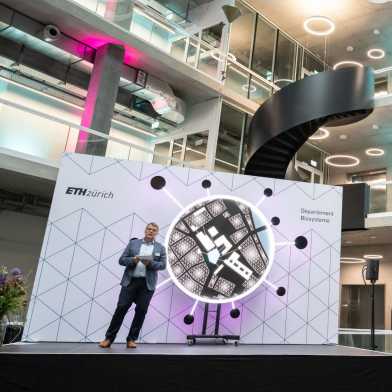
On 16 May 2024, ETH Zurich celebrated the official opening of its new teaching and research building BSS in Basel. The different speakers unanimously emphasised that over the past 17 years the ETH-Department Biosystems Science and Engineering has become an important partner in the Basel life science hub.
Prisca Liberali becoming D-BSSE faculty member
External
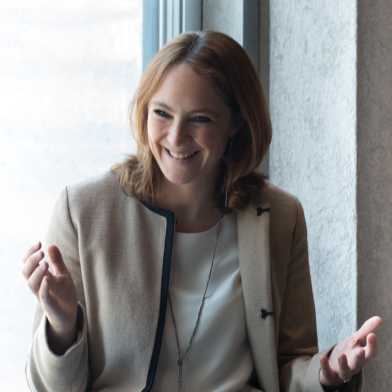
At today's meeting of the ETH Executive Board, Prisca Liberali, currently Adjunct Professor at the University of Basel and Senior Group Leader at the Friedrich Miescher Institute for Biomedical Research, was appointed as Full Professor of Multicellular Systems at D-BSSE. A warm welcome, Prisca!
Sylke Poehling first Professor of Practice at D-BSSE
External
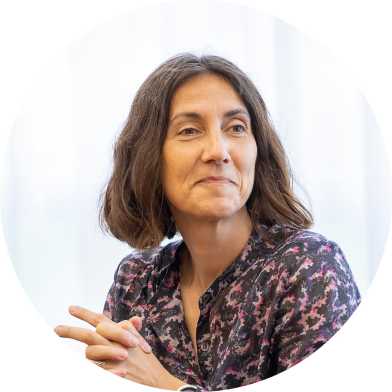
Sylke Poehling, Global Head and Senior Vice President for Therapeutic Modalities at Roche Pharma Research & Early Development (Roche pRED) and Member of the Supervisory Boards of Roche Diagnostics GmbH and Roche Deutschland Holding GmbH, has been appointed the first Professor of Practice at our department. A warm welcome, Sylke!
Barbara Treutlein promoted to full Professor
External
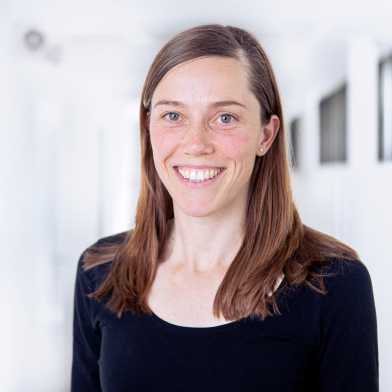
The Executive Board of ETH Zurich communicates today the promotion of Barbara Treutlein, currently Associate Professor at D-BSSE, to Full Professor of Quantitative Developmental Biology. Big contrats, Barbara!
Registration closes soon: Latsis Symposium on Genome and Transcriptome Engineering
External
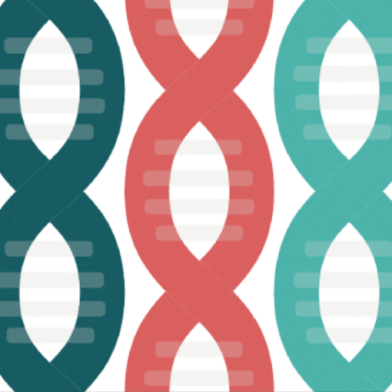
Genome and transcriptome engineering has revolutionised fundamental research and is bringing cutting-edge therapies to patients. Please register for an exciting two-day symposium on 13-14 June with speakers from academia and industry at the forefront of the field. Topics will span brand new research results and applications in the real world; the abstract submission deadline is on 31 May.
ETH Public Tour: Open doors at the Systems Physiology Laboratory
External
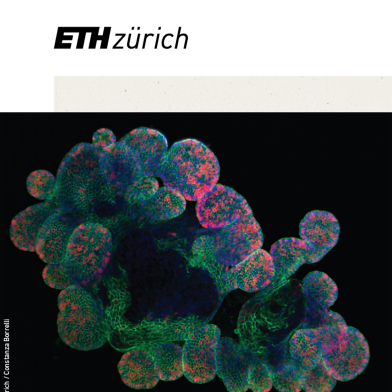
On 4 June, at 6:15 PM, the public is invited to learn about how cancer cells communicate with their environment. After a short introduction by Dr Xenia Ficht, Senior researcher in the lab of Professor Andreas Moor, you will go into the labs and discuss with young scientists their research and experimental set ups. Please register for this tour as seats are limited (in German)!
An architectural gem and cutting-edge research facility in Basel
- External
- Press release
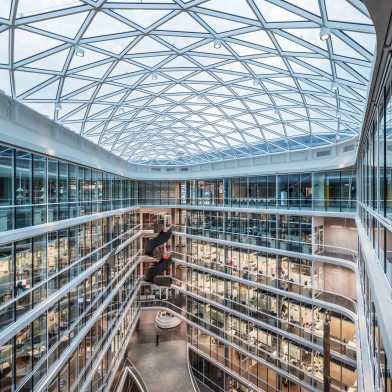
ETH Zurich’s new BSS teaching and research building on the Schällemätteli life science campus in Basel will officially open its doors today. The building will host ETH researchers from the fields of experimental biology, bioinformatics, and bioengineering as they work together with outside partners on innovative medical solutions.
ETH Medal for excellent research: Insights from human organoids and axolotls
External
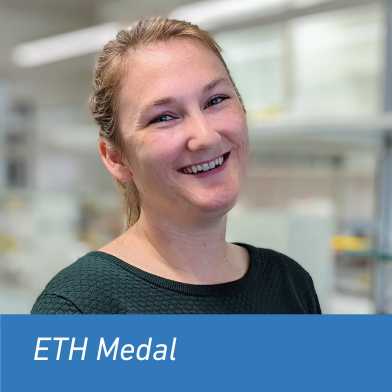
Ashley Maynard from the Quantitative Developmental Biology group of Barbara Treutlein receives the ETH medal for her excellent doctoral thesis on the molecular landscape of neurogenesis in the vertebrate brain. Big congrats!
Spinoff Memo Therapeutics boosts Series C Financing, advancing antibody development against BK virus infection
External
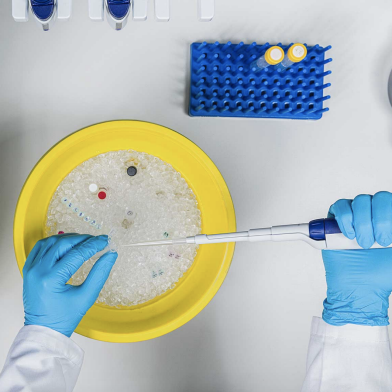
On 7 May, the D-BSSE spinoff Memo Therapeutics announced the extension of its Series C financing, bringing the total amount raised in the funding round to CHF 45 million. According to the media release, the raised capital will be instrumental to expand Phase 2 of clinical development by evaluating the dose of “best-in-class anti-BK Virus antibody”, facilitating “the largest study ever conducted for BK polyomavirus infection in kidney transplantation”.
A new direction for cancer research
External
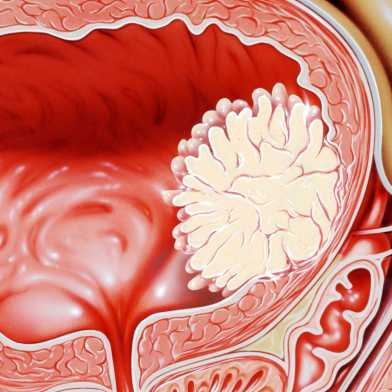
In collaboration with the University Hospital Basel, researchers from ETH Zurich in Basel are investigating the early stages of bladder cancer. Their findings show that future research should also focus on mechanical changes in tumour tissue.
Cutting-edge research from Basel
External
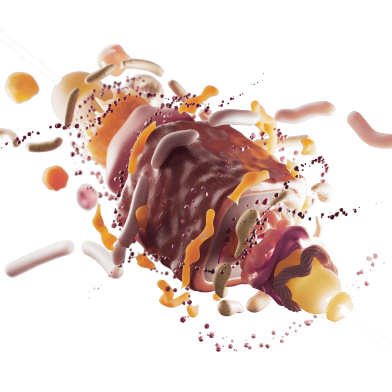
From new tests and therapies to the fundamental principles of biology: five compelling examples of the benefits of new bioengineering technologies. Research highlights from the D-BSSE in Basel.
Tanja Stadler elected member of the Leopoldina
External
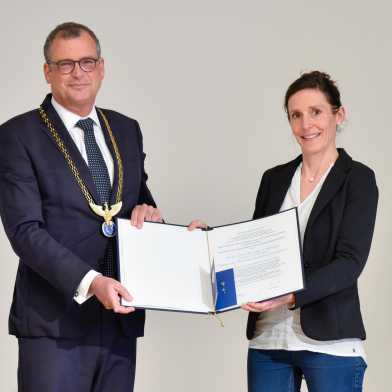
Great honour for Tanja Stadler, Head of the Computational Evolution group: on 17 April, she officially received the membership certificate from Leopoldina, the German National Academy of Sciences. Leopoldina unites researchers with outstanding expertise in their respective fields, currently counting around 1'600 Academy members, being elected for their outstanding scientific achievements. Congratulations, Tanja!
Randall Platt receives the Young Innovator Award from the American Chemical Society
External
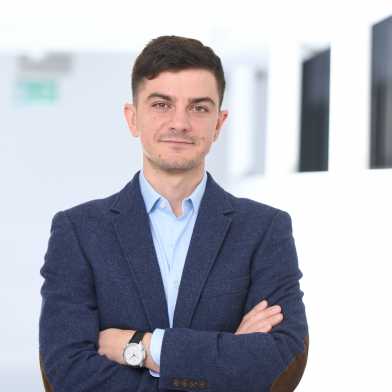
On 16 April, the Synthetic Biology publication branch of the American Chemical Society (ACS), in partnership with The American Institute of Chemical Engineers, announced the winner of the 2024 Young Innovator Award: Randall Platt, Head of the Biological Engineering lab. The award recognises his “focus on developing and applying cutting-edge gene editing and synthetic biology technologies that address urgent and fundamental needs in biomedical research”.
Swiss Institute of Bioinformatics is listing Beerenwinkel paper as Remarkable Output 2023
External
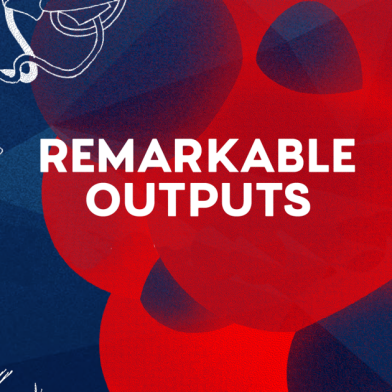
On 9 April, the Swiss Institute of Bioinformatics announced the Must-Reads for computational biologists, including a paper on the novel computational tool TreeMHN developed by the group of Niko Beerenwinkel. According to the committee, the tool “represents outstanding progress in the life science field. It enables a better processing of single cell-based tutor mutation data for the representation and potentially, prediction of cancer trajectories”.
Antimicrobial resistance may evolve more rapidly than previously thought
External
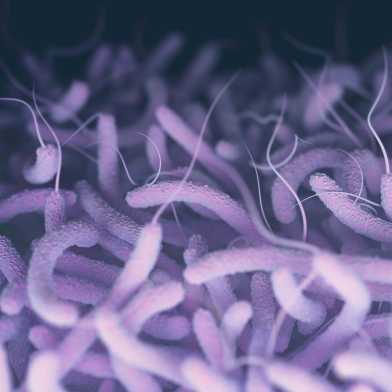
As antimicrobial resistance increases globally, infections with resistant bacteria pose a major public health threat. In a new study in Nature Catalysis, a team of researchers led by Adrian Bunzel from the Bioprocess Laboratory at D-BSSE and Christopher Frohlich from the Arctic University of Norway revealed a novel mechanism for how resistances can emerge alarmingly fast. The discovery may help create antibiotics that are less prone to resistance and guide personalized health care.
A leap forward for computer simulations of cellular tissues
External
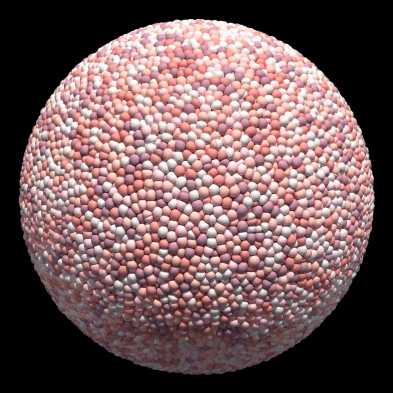
Many aspects of how cells organise in a tissue are still a mystery. Researchers from the Computational Biology group of Dagmar Iber use computer modelling to unravel the cellular organisation that gives rise to tissue shape and function in development and disease. A new powerful computer programme presented in Nature Computational Science is a big leap forward. The team hopes to be able to dig much deeper into the biophysics of the fundamental building blocks of life than was possible before.
Mini-organs with big potential
External
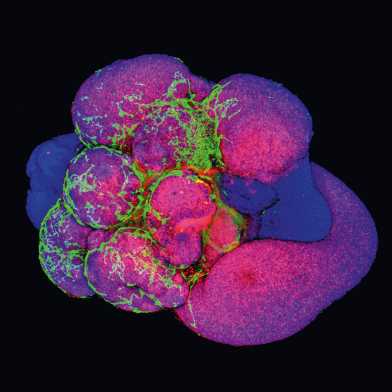
Organoids grown from human stem cells can help provide answers to important medical questions. In a partnership that looks set to profit both sides, D-BSSE professor Barbara Treutlein has teamed up with pharma giant Roche to advance research in this area.
Farewell to faculty member Yaakov (Kobi) Benenson
External
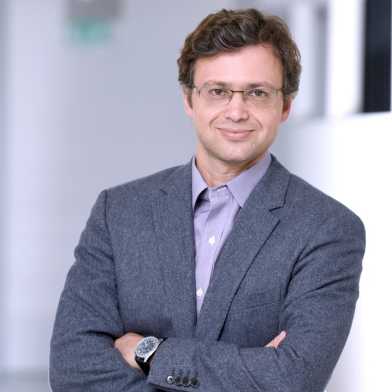
Yaakov Benenson, Professor of Synthetic Biology, leaves the D-BSSE at the end of March to become a full-time entrepreneur at a biotech startup.
GLOBE magazine turns the spotlight on D-BSSE
External
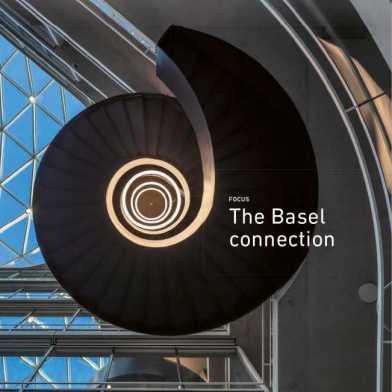
The latest issue of the GLOBE magazine of ETH Zurich has a focus on the D-BSSE and its connections and cooperations with institutions in Basel and beyond. Featuring numerous examples of cutting-edge research, the magazine reveals the department’s unique strengths in combining life sciences and data-driven engineering to target key medical challenges. A truly inspiring read!
Combatting infant malnutrition
External
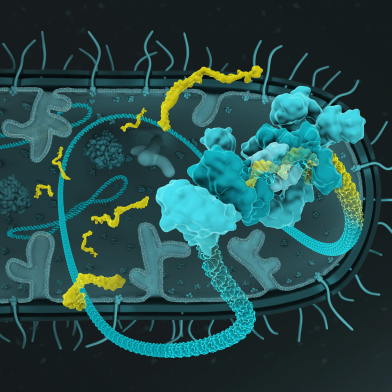
Bioengineer Randall Platt engineers bacteria that can assess the state of our guts. It is hoped this non-invasive technique could eventually be used to develop more effective interventions against malnutrition among children in the Global South.
Seminar “Bench meets Bedside”
External
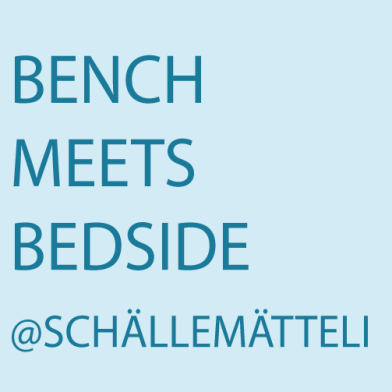
On 18 April, 3-5pm, the next ‘Bench meets Bedside’ seminar of the Engineering Translational Medicine initiative will take place at the new D-BSSE building. Consult the website for the programme and the registration link (closing on 15 April).
Full house at Personalised Health Conference
- ETM
- External
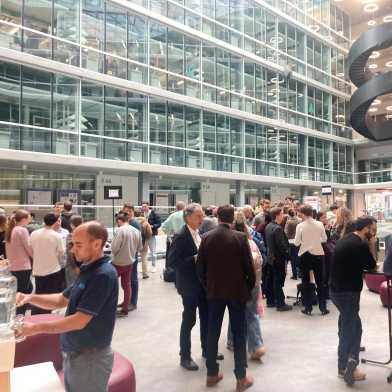
Today, we are hosting the Personalised Health Conference with an excellent lineup of keynote speakers: Adrian Egli, Director of the UZH-Institute of Medical Microbiology, Emma Slack, ETH-Professor for Mucosal Immunology, and Jacques Fellay, EPFL-Professor of Genomics and Precision Medicine. Scientists from the D-BSSE and the EU-funded network Machine Learning Frontiers in Precision Medicine also share their latest findings and perspectives on translational research and personalised health.
Designed for bold visions
External
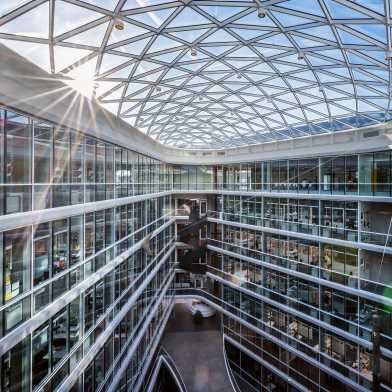
The idea of ETH Zurich establishing a Department of Biosystems in Basel once seemed unachievable. Today, the department occupies a new building where the dividing lines between biology, computer science and engineering are blurred – and researchers increasingly focus on medical applications.
Niko Beerenwinkel now distinguished fellow of ISCB
External
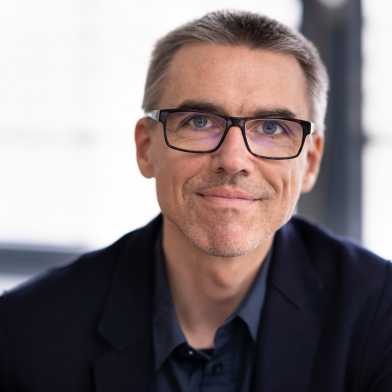
The International Society for Computational Biology ISCB welcomes Niko Beerenwinkel, head of the Computational Biology Group, in its 2024 class of fellows. Honouring distinguished scientists who advanced the frontiers of computational biology and bioinformatics, the jury highlighted Niko’s groundbreaking contributions to cancer research and viral genomics. Congratulations, Niko!
D-BSSE spinoff BioVersys teams up with GSK and successfully reaches clinical milestone
External
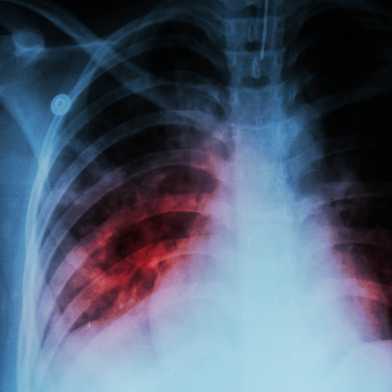
Developing novel antibacterial products for life-threatening infections, BioVersys announced on 5 March that in partnership with the pharma and biotech company GSK they have successfully completed the Innovative Medicines Initiative (IMI2) funded programme and reached a key milestone of delivering a Phase 2-ready tuberculosis clinical candidate. The funding scheme is an EU public private partnership programme.
Studying the mechanosensitivity of neurons at nano-scale
External
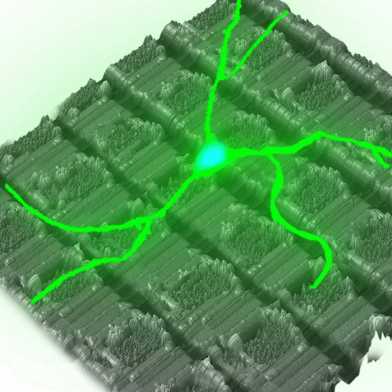
Right from the early developmental stages to fully grown adults, brain cells continuously rely on mechanical cues to migrate to the correct locations in the body, form connections with other neurons or other cell types and communicate with them in a unique language of electrical impulses. In a new study, researchers from the Biophysics group of Daniel Müller and the Bio Engineering Lab of Andreas Hierlemann reveal how neurons sense the magnitude and temporal features of physical forces.
Understanding the pathology of neurodegenerative diseases
External
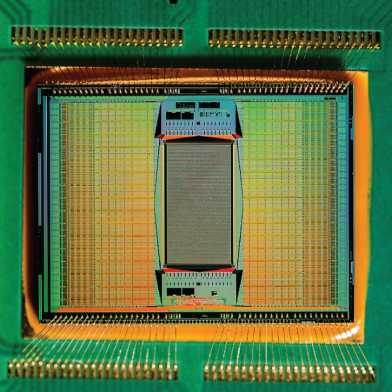
Neurodegenerative diseases such as amyotrophic lateral sclerosis (ALS) and frontotemporal lobar dementia (FTLD) are difficult to study in vivo. A study led by the University of Zurich in collaboration with the Lab of Andreas Hierlemann, now identifies potential targets that may cause these diseases and their progression. The scientists developed a novel human-derived in vitro cell-culture model and methods for testing that the cells are functional, paving the way for new therapies.
2023 in Review
External
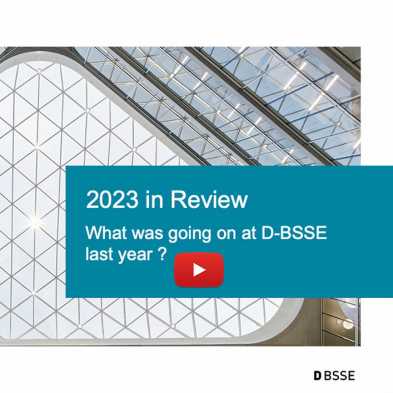
Last year was a very exciting year for the D-BSSE: we moved into our new building on campus Schällemätteli in Basel, celebrated many awards, prizes and scientific highlights, launched major partnerships such as the Next-gen Bioengineers programmes with Roche and the Engineering Translational Medicine initiative - and hosted a fantastic welcome retreat. See what was going on at D-BSSE in 2023!
Personalised Health Conference on 13-14 March at D-BSSE
- ETM
- External
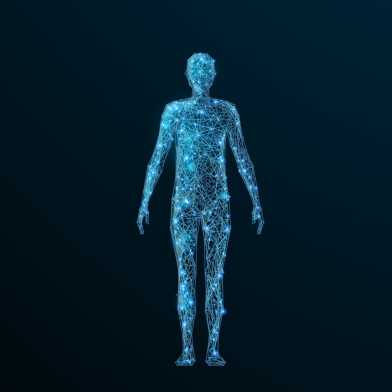
In mid-March, the Personalised Health Conference will take place at D-BSSE. The programme includes two exciting days with keynote talks by Adrian Egli, Emma Slack and Jacques Fellay. On the second day the focus lies on translation, entrepreneurship and commercialisation. Registration is free of charge and ends on 10 March.
Kickoff of the seminar series of the Next-Gen Bioengineers programmes
External
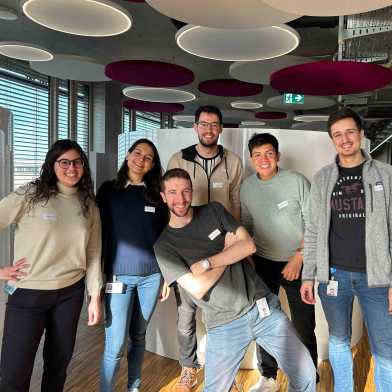
On 29 January, the two joint programmes of ETH Zurich and Roche kicked off the seminar series «Next-Gen Lunch and Learn» providing opportunities for scientific exchange and networking for scientists and fellows from the Institute of Human Biology, pRED and D-BSSE. On a guided tour to the D-BSSE Single Cell and Lab Automation facilities led by Thomas Horn the young scientists learned about the many resources available for their research.
Welcoming new leadership at D-BSSE
External
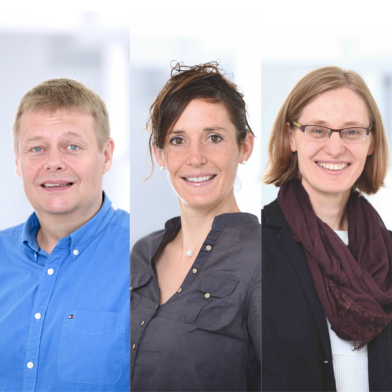
As of 1 February 2024, a new leadership runs D-BSSE: Head of Department is Sven Panke, his Deputy is Tanja Stadler. Petra Dittrich continues in her role as Director of Studies. Big thanks go to the outgoing Department Head Daniel Müller, who led the D-BSSE for the past 3 years.
Novel intestine-on-chip system
External
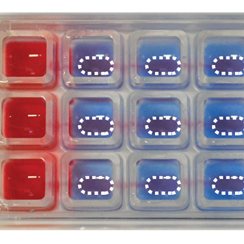
The pathogenesis of inflammatory bowel disease is complex and not fully understood. A novel intestine-on-chip microfluidic system, developed by the Bio Engineering Laboratory of Andreas Hierlemann now enables to study in detail the physiological processes during inflammation. The system helps to elucidate the role of different immune cell types in intestinal inflammation and their specific responses to anti-inflammatory drugs and provides valuable insights for developing therapeutic strategies.
Syphilis-like diseases were already widespread in America before the arrival of Columbus
External
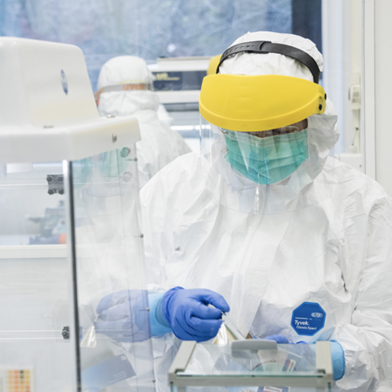
One of the biggest mysteries in historical epidemics is whether syphilis was introduced in Europe by Columbus’ first voyage to the Americas. A new international study, led by the University of Basel with contributions from the Computational Evolution group at D-BSSE, reconstructed Treponema pallidum genomes from nearly 2000-year-old remains from Brazil. The finding: treponema diseases were already present in the New World at least 1000 years before Columbus set sail.
New agent blocks stress response
External

If the body’s natural stress response gets knocked off balance, it can result in physical and mental health disorders. Researchers at ETH Zurich have developed an agent capable of selectively inhibiting this response. In Andreas Hierleman’s Bio Engineering Laboratory the electrophysiological measurements in cell systems were carried out.
Complement system causes cell damage in Long Covid
External

Long Covid patients suffer from chronic symptoms such as fatigue or shortness of breath. As researchers at the University of Zurich and University Hospital Zurich with support from D-BSSE data analysts discovered, this is to some extent due to a part of our immune system called the complement system. The study identified a pattern in the blood proteins that will improve the diagnosis and perhaps also the targeted treatment of Long Covid.
Great public interest in Open-Lab tour
External
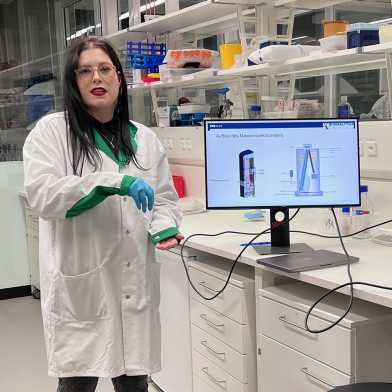
On 12 December, Petra Dittrich and her group invited the public to learn about microchips and their great use for medical and diagnostic applications or for biological analyses. After a short introduction on the principles of ‘lab-on-a-chip’ technologies, the visitors to the fully booked tour saw some of the labs from inside and had the opportunity to discuss open questions with the young scientists.
Welcome to our new faculty member Basile Wicky
External
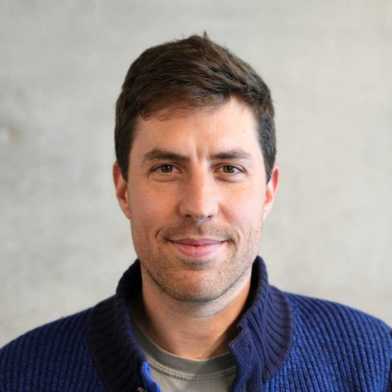
Upon application of the President of ETH Zürich, the ETH Board appointed Basile Wicky, currently Postdoctoral Researcher at the University of Washington in Seattle, USA, as Tenure Track Assistant Professor of Biomolecular Design at D-BSSE, starting this position in June 2024. Basile’s research focuses on computational protein design and synthetic biology for programming biomolecular and cellular systems.
New method to understand cell-cell communications
External
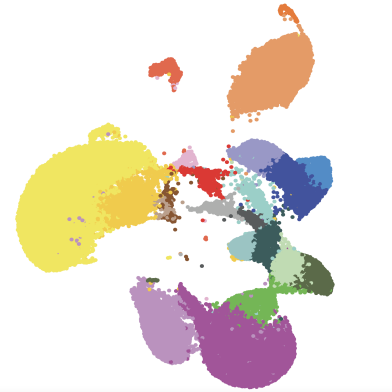
By communicating with one another, cells collectively drive biological functions. The direct neighbourhood of a cell influences its behaviour, gene expression and the cellular crosstalk. The development of diseases is often the consequence of disrupted cell-cell communications. In a study published by Nature Communications, researchers from the Systems Physiology lab of Andreas Moor, developed a method to characterise microenvironments at single-cell resolution.
Redirecting immune cells against cancer
External
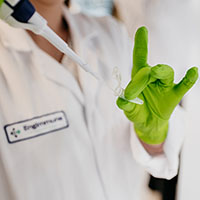
ETH spin-off Engimmune Therapeutics, a D-BSSE start-up from the Reddy group, has developed technologies to engineer T-cell receptors (TCRs) which are part of immune cells. Guided by machine learning, the technologies enable the development of TCR drugs that specifically target solid tumours. This emerging therapeutic approach is scalable and less costly than other modalities such as cell therapies.
Pregnancy remodels the brain: stem cells shape the sense of smell in mothers
External
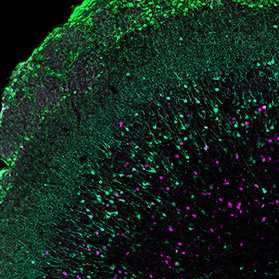
Pregnancy and motherhood lead to brain remodeling. Researchers at the Biozentrum, University of Basel, and the Systems Physiology Lab of Andreas Moor, have now discovered in experiments with mice that distinct pools of stem cells in the adult brain are turned on during pregnancy. They give rise to specific types of olfactory bulb neurons, the team reports in the journal Science.
ETH Public Tour: Open doors at the Bioanalytics Laboratory
External
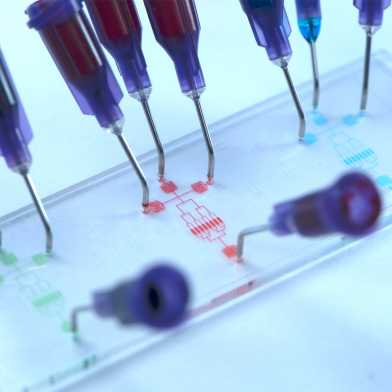
On 12 December, at 6:15 PM, the public is invited to learn about microchips and their great use for medical and diagnostic applications or for biological analyses. After a short introduction by Professor Petra Dittrich you will go into the labs and discuss with young scientists their research and experimental set ups. Please register for this tour (in German)!
Andreas awarded the Golden Owl in recognition of his excellent teaching
External
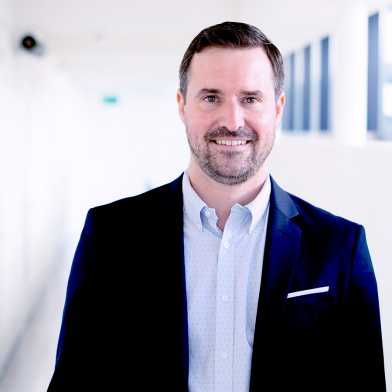
The ETH Golden Owl honours lecturers distinguished by exceptional teaching and motivates them to continue with their excellent teaching. The Owl is warded by ETH Zurich’s student association. This year, the Owl was awarded to Andreas Moor, Professor of Systems Physiology at D-BSSE. Congratulations!
D-BSSE spinoff Memo Therapeutics secures funding to speed up clinical development of therapeutic antibodies for renal transplant patients
External
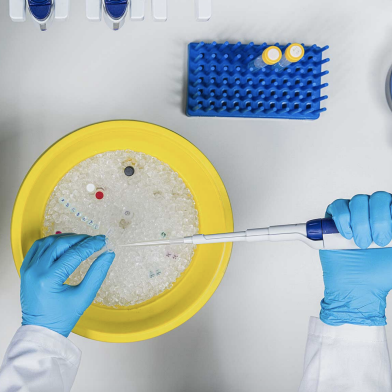
Memo Therapeutics, a late-stage biotech company specialised in the development of therapeutic antibodies, has announced the successful closure of a CHF 25 million Series C financing round. The raised capital will be instrumental to complete the Phase 2 clinical development of the antibody AntiBKV, designed to combat BK polyomavirus infections in kidney transplant recipients. Founded in 2012, Memo Therapeutics originated from the Bioprocess lab of Sven Panke.
ERC Synergy Grant for Barbara Treutlein
External
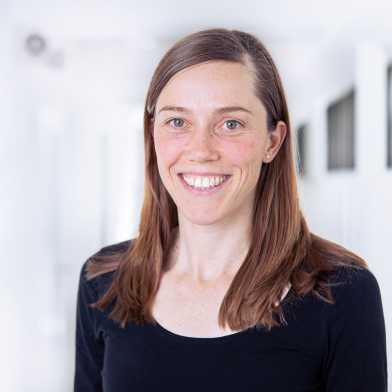
Barbara Treutlein receives a Synergy Grant of the European Research Council (ERC) for her research on the European project “AxoBrain” which focusses on the organisation and evolution of the brains of axolotl salamanders, extraordinary animals that can regenerate parts of their brains after severe injury. Congratulations, Barbara!
Kickoff of Basel collaborative research hub: Engineering Translational Medicine
- ETM
- External
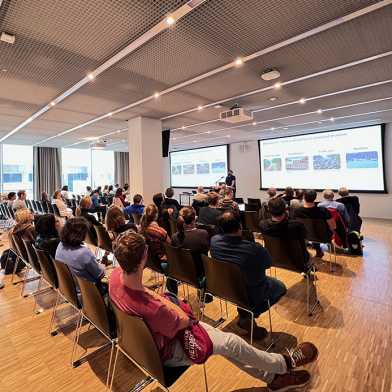
On 25 October, researchers from the D-BSSE, the University of Basel, the University Hospital and the University Children’s Hospital Basel met at the new ETH-building on Schällemätteli campus to mark the kickoff of a joint seminar series dedicated to translational projects and clinical applications. Spearheading the roll-out of the Engineering Translational Medicine research hub, this first event brought together experts from bench and bedside to spark innovative approaches and collaborations.
“I felt very honoured, but I could not give up on all this”
External
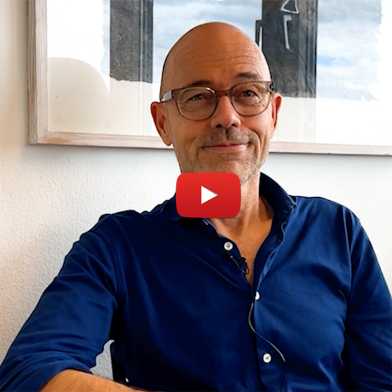
Daniel Müller, Head of the Biophysics group, was offered the prestigious Humboldt professorship. Learn about his motivation to decline this once-in-a-lifetime opportunity and the many reasons why it was a clear decision for him to stay at the D-BSSE and ETH Zurich.
Award honours Sven Panke for his efforts in promoting entrepreneurship
External
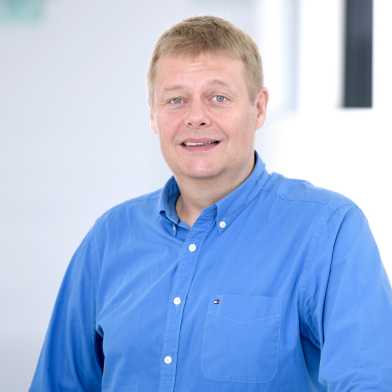
With the Dandelion Award, the ETH AI Center, ETH Entrepreneurship, the ETH Entrepreneur Club and Talent Kick recognise faculty members who are most entrepreneurial-friendly at ETH departments. Nominated by ETH students, PhDs and Post-Docs, Sven Panke receives the prize in 2023 at the D-BSSE. Well deserved: since 2011, the spinoff companies FGen, Memo Therapeutics, Omne Possibile, and Myria Biosciences originated from his Bioprocess lab. Congratulations, Sven!
Improving the environmental footprint of the textile industry: Bio-indigo for eco-conscious blue jeans
External
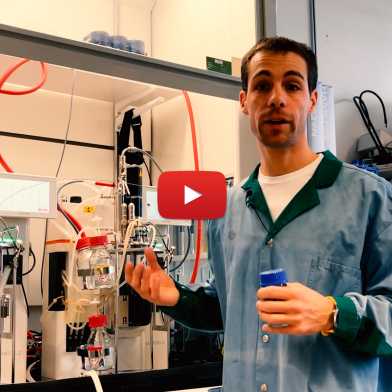
Only indigo gives denim its distinct blue colour. The dye is globally produced in quantities of up to 80,000 tonnes per year. However, its chemical production relies on fossil fuels, and some of the by-products are extremely toxic. After three years of research, scientists in Sven Panke's Bioprocess Lab have successfully developed a fermentation process for the synthesis of bio-indigo from renewable feedstock. The quality of this dye allows for direct application in industrial fibre staining.
Cloëtta Jubilee prize awarded to two ETH professors in Basel
External
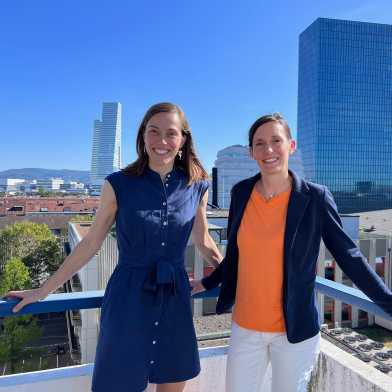
Professors Tanja Stadler and Barbara Treutlein awarded the Cloëtta Jubilee Prize for their outstanding achievements in biomedical and developmental biology research.
New BSS building in Basel wins the iconic award for its architecture
External
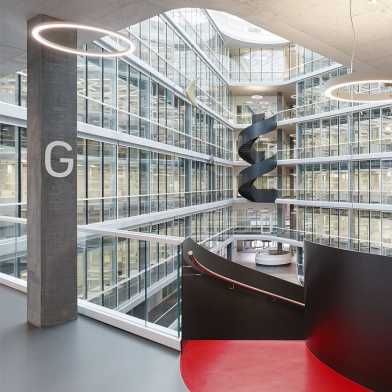
The new laboratory and research building in Basel has been awarded the "Iconic Awrad 2023" in the category "Innovative Architecture - Public / Culture / Education". The BSS building is the new home for the ETH Department of Biosystems Science and Engineering.
Genetically modifying individual cells in animals
External
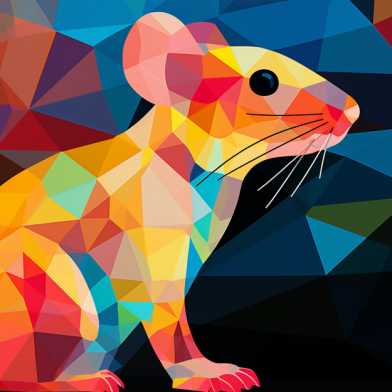
Researchers around Randall Platt have developed a method that lets them genetically modify each cell differently in animals. This allows them to study in a single experiment what used to require many animal experiments. Using the new method, the researchers have discovered genes that are relevant for a severe rare genetic disorder.
Welcome to our new Master students!
External
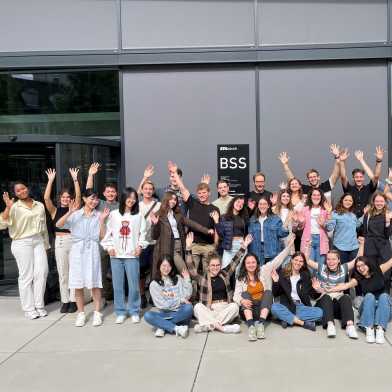
A warm welcome to our 67 new Master students at D-BSSE in Basel, enrolled in our Biotechnology and Computational Biology & Bioinformatics Master-level programmes. Have a great start!!!
A human model for autism
External

The CRISPR-Cas gene scissors enable researchers around Barbara Treutlein and colleagues from Vienna to study the genetic and cellular causes of autism in the lab – directly on human tissue.
Organoid Atlas: Understanding tissue development and degeneration
External
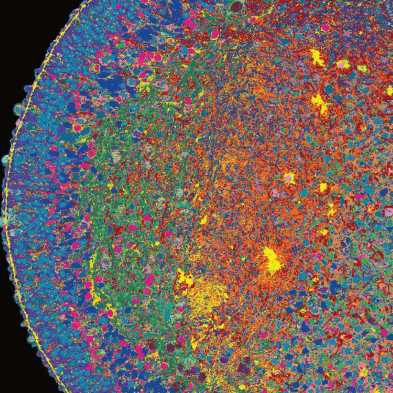
The eye-catching image in the current issue of GLOBE was taken by the group of Quantitative Developmental Biology group of Barbara Treutlein. It shows a thin section of retinal tissue, stained with fluorescent dyes and imaged using fluorescent microscopy. This process was developed to image 3D issue structures cultivated in the lab. A comprehensive atlas now combines all images from organoids to improve our understanding of tissue development and degeneration.
Engineered biosensors seek high-potential microbes for sustainable bioproduction
External
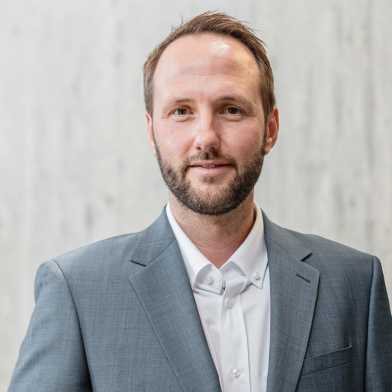
Markus Jeschek, Professor of Synthetic Microbiology at the University of Regensburg, Germany, and alumnus of Sven Panke’s Bioprocess lab, receives a prestigious Starting Grant from the European Research Council (ERC). In their project BiosenSAI, Jeschek and his team will build synthetic biosensors which help detect new microbes for the sustainable bioproduction of compounds with valuable properties for the chemical and pharmaceutical industry. Congratulations!
Wei Wei receives the 3Rs Young Investigator Award
External
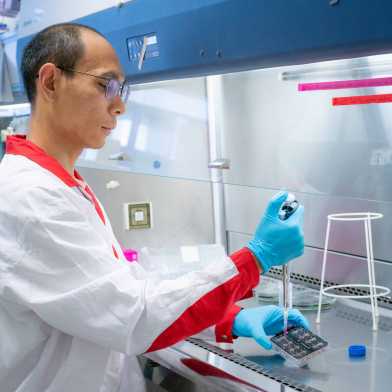
Honouring significant advances in the 3Rs Principle, i.e. replacement, reduction, and refinement of animal experimentation, the Swiss 3R Competence Centre is granting this year’s Young Investigator Award to Wei Wei, PhD candidate in the lab of Andreas Hierlemann. In his studies, Wei is creating a 3D model of the brain’s protective wall, the blood-brain-barrier, allowing him to investigate physiological processes at this wall. Big congrats, Wei!
D-BSSE at the Scientifica in Zurich, 2-3 September 2023
External
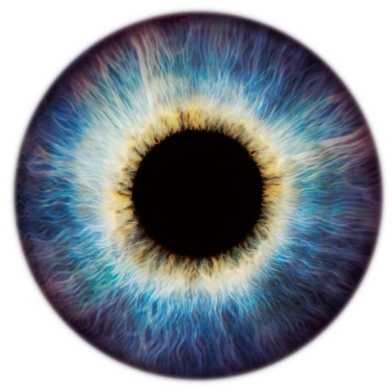
Switzerland’s largest science festival Scientifica is dedicated to the theme “What holds the world together”. Jointly organised by ETH Zurich and the University of Zurich, D-BSSE is contributing to the exciting programme with four activities including thematic booths, a workshop for teenagers and a science café. Scientifica takes place on 2-3 September in Zurich.
An investment in more research to benefit children and adolescents
External
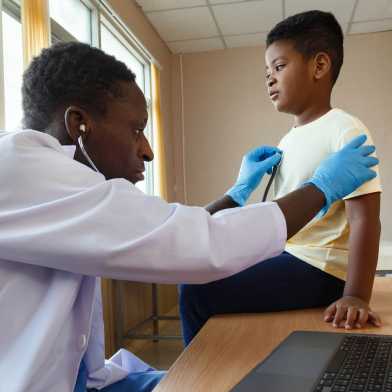
Fondation Botnar is donating an additional CHF 50 million to the University of Basel and ETH Zurich to expand the activities of the joint Botnar Research Centre for Child Health (BRCCH). This support will allow to create six new professorships with a research focus on paediatric digital health. Two Botnar-funded professors will be located at D-BSSE in Basel.
Cells with an ear for music release insulin
External
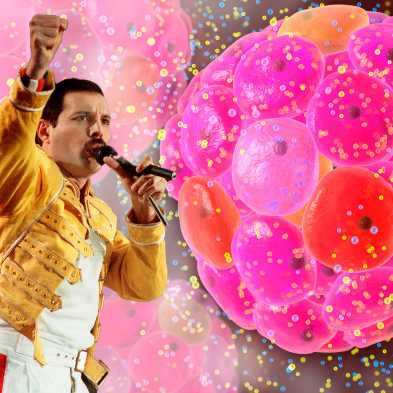
"We will rock you": Researchers around Martin Fussenegger, head of the D-BSSE Biotechnology and Bioengineering group, are developing a gene switch that triggers insulin release in designer cells by playing certain rock and pop songs.
What is a cell type?
External
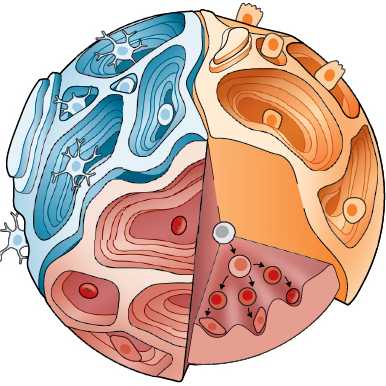
Cell atlases chart the molecular information of cells including its genetic make-up and the molecular changes along the cell’s lifespan. This information deepens our understanding of cell-to-tissue and disease development. In a Science Perspective article, Barbara Treutlein and colleagues at Roche’s Institute of Human Biology now question “What is a cell type?”, and call for future research into charting perturbations which alternate the cell’s molecular phenotype.
Using mutations in cancer and healthy single cells to track evolutionary changes
External
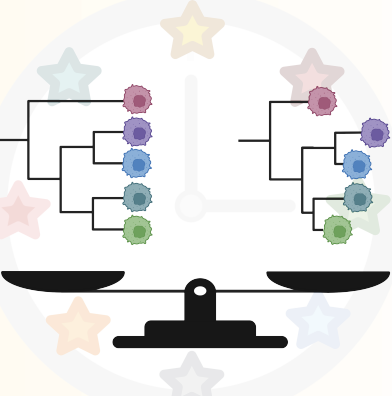
Variations in the cellular DNA occur frequently and are passed on to descending cells, thereby tracking the evolutionary history of cell populations. In a study published in Cell Genomics, researchers from the Computational Biology group of Niko Beerenwinkel utilized DNA variations to investigate the evolutionary rates in single cells from healthy and cancer tissues. They found that most cancer cells vary in their evolution rate, and also many healthy tissues show evidence for varying rates.
Basel networking event
External
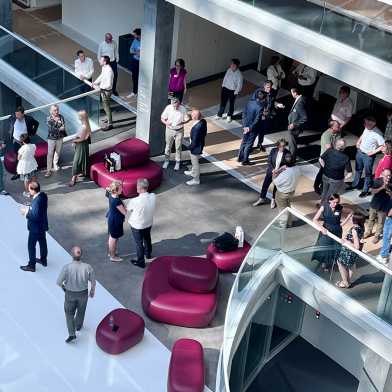
Holding their annual networking event in our new home, on 16 August we were welcoming the councillors of the cantons Basel City and Basellandschaft, their administrations, members of federal bodies, and representatives of academic partners, in total more than 90 guests.
Advanced Grant for system biologist Mustafa Khammash
External
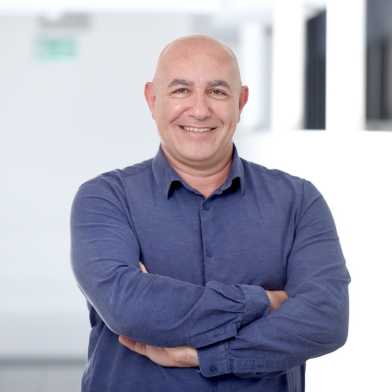
Mustafa Khammash receives the prestigious Advanced Grant currently awarded by the Swiss National Science Foundation rather than the European Research Council for his project "Theory and Design of Advanced Genetically Engineered Control Systems".
Move to new ETH buildings is well underway
External
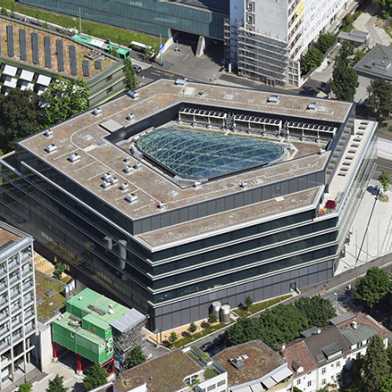
The new BSS research building in Basel and the GLC in the centre of Zurich are now ready for occupation. The construction work took longer than planned, but the time has finally come: staff from the BSSE, HEST and ITET departments have begun to move in.
Teaching Excellence Award for Michael Nash
External
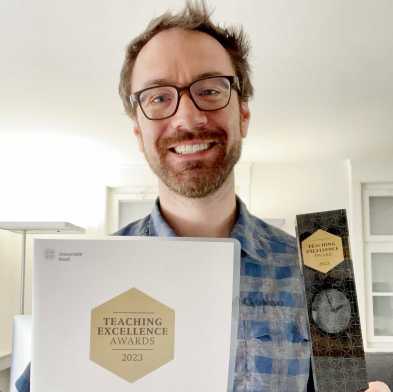
The University of Basel is presenting this year’s Teaching Excellence Award to Michael Nash, Professor of Molecular Engineering of Synthetic Systems at the Department of Chemistry and the D-BSSE. The jury honoured in particular his “patience, and open, relaxed manner allowing students to approach him on equal footing and giving them the opportunity to share their own thinking processes, helping them to get their heads around the lecture material more quickly”. Congratulations, Michael!
Working together to train and empower the next generation of biomedical researchers
External
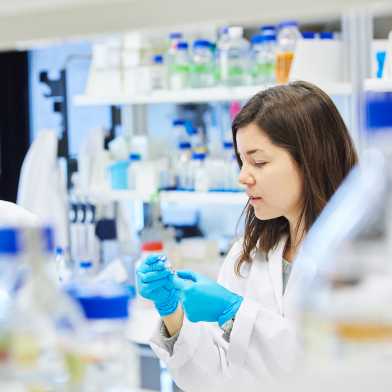
ETH Zurich and Roche are joining forces to advance the development of new methods that facilitate the search for medicines. By launching two programmes in Basel for doctoral students and postdoctoral researchers, D-BSSE together with Roche's IHB and pRED will train specialists for the biomedical challenges of our time.
Advanced soft electrophysiological device to capture brain cortex activities
External
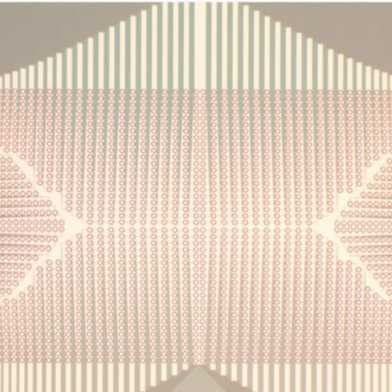
A team of researchers from Stanford University, CA, USA, together with researchers from the Bio Engineering Lab, led by Andreas Hierlemann, developed a high-density electrode array and connector on an ultra-conformable thin-film substrate, which self-assembles onto silicon microelectrode arrays and enables electrocorticogram recordings of extracellular neuronal activity with several thousand channels at micrometer resolution. The device and system was tested with brains of epilectic mice.
Engineering Life - State of the Art and Ethical Challenges: Symposium at the Swiss Embassy in London
External

On 20 June, the NCCR Molecular Systems Engineering, co-directed by the University of Basel and ETH Zurich, organised a symposium at the Embassy of Switzerland to the United Kingdom. Leading scientists from the UK and Switzerland presented their research in scientific keynotes which were complemented by short showcase presentations of young scientists from both countries. The symposium ended with a panel about the ehical challenges of engineering life sciences.
How evolution in genotype networks drives biological function
External
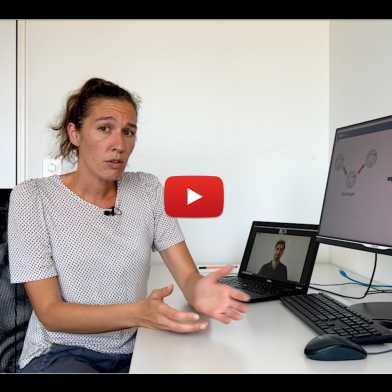
In a new study in Nature Communications, researchers around Joerg Stelling from the Computational Systems Biology group and Yolanda Schaerli, University of Lausanne, shed light on the link between the genetic makeup (genotype) and the behaviour (phenotype) of gene regulatory networks. Using experimental synthetic biology and approx. 4 million mathematical models, they demonstrate large genotype networks, i.e., connected genotypes with the same phenotype, that can facilitate evolution.
PhD Days 2023
External
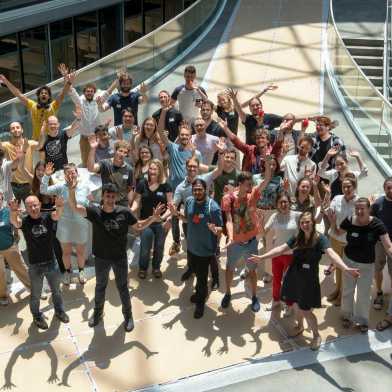
On 8 and 9 June, some 50 doctoral students from D-BSSE celebrated their housewarming at BSS with an exciting programme around science communication, career development, mentorship and supervision at ETH Zurich, and plenty of social and networking events. A highlight was the so called Night Science workshop on the creative side of the scientific process.
New insights into developmental precision
External
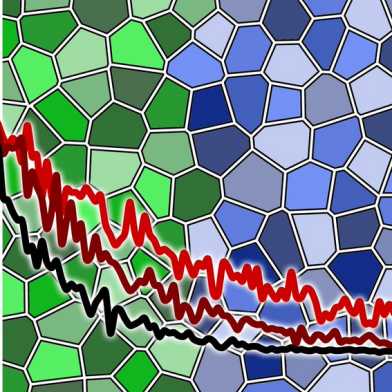
Signaling molecules called morphogens guide the formation of patterns in tissues. Their concentration forms gradients along the tissue to determine cell fate. How this mechanism can be robust towards biological noise and what the role of cell size is in pattern formation has long remained unclear. Using mathematical modelling, Jan Adelmann from the Computational Biology group of Dagmar Iber, shed new light on these two key aspects of developmental biology in his Master’s thesis.
Congratulations to our 2022 graduates!
External
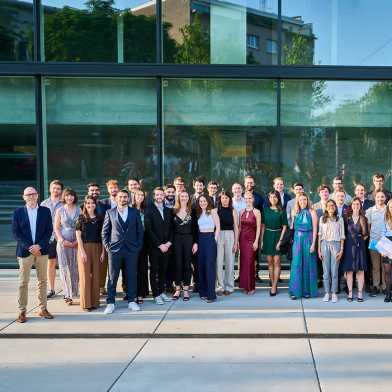
On 26 May, the Graduation Ceremony was held as the very first event in our new home in Basel. 22 Biotechnology and 18 Computational Biology & Bioinformatics graduates attended the celebration together with their family and friends, in total some 170 guests, enjoying the sneak peek into the new building and filling the atrium with their laughters and smiles. Huge congrats to our graduates and best of success for a bright future!
Under control to the very end – how our cells kill themselves
External
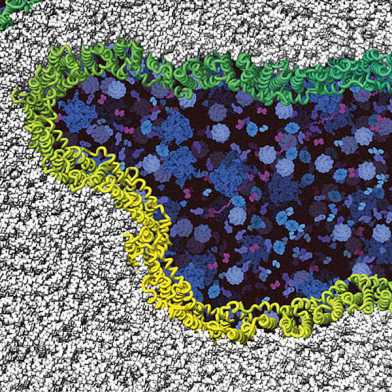
Every day, millions of cells die in our body. Other than generally assumed, cells do not simply burst at the end of their lives but rather, a specific protein serves as a breaking point for cell membrane rupture. Researchers led by Sebastian Hiller at the Biozentrum, University of Basel, in collaboration with D-BSSE group leader Daniel Müller have now been able to elucidate the exact mechanism at the atomic level.
ETH Medals for excellent research: pathogens in public health | bacterial growth platform
External
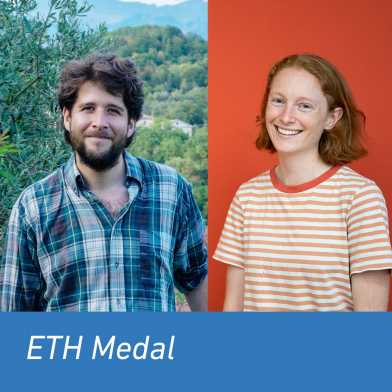
Sarah Nadeau from Tanja Stadler’s group and Joaquin Gutierrez from the lab of Mustafa Khammash receive the ETH medal for their excellent doctoral theses on advancing pathogen phylogenies for public health and developing a fully automated platform for co-culturing bacterial communities, respectively. Big congrats!
Detailed image of the human retina
External
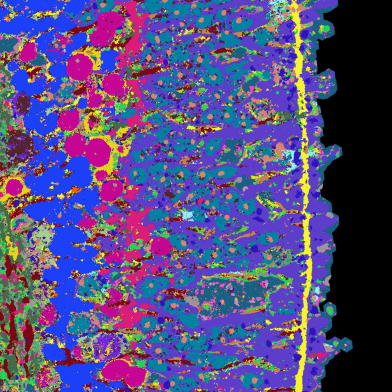
Researchers from Basel and Zurich are creating a high-resolution atlas that depicts the development of the human retina. One technique they use is a new method that allows them to visualise more than 50 proteins simultaneously.
SNSF award for Roman Vetter's research video
External
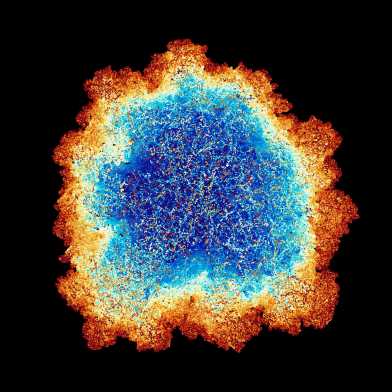
As one of 435 entries submitted to the 2023 SNSF Scientific Image Competition, the video of Roman Vetter was awarded the jury distinction. This stunning videos simulates tissue growth of a malignant tumour growing from a single cell to a million cells. Congratulations, Roman!
Achievements and legacy of the largest SARS-CoV-2 sequencing effort in Switzerland
External
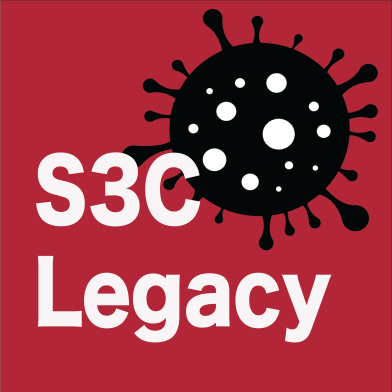
Whilst facing extraordinary challenges at the start of the COVID-19 pandemic, the Swiss SARS-CoV-2 sequencing consortium (S3C) was established at D-BSSE. With over 76’000 SARS-CoV-2 genomes sequenced between 2020 and the end of 2022 and made available in open-data archives, the effort led by Tanja Stadler informed science-based decision making – and will facilitate pathogen surveillance in the times to come.
Digital and interactive: ETH Zurich’s Annual Report 2022 is now available!
External

The ETH Zurich annual report for 2022 is out! For the first time it has been published in digital form, providing an interactive tour through the different areas of the university, as well as describing how ETH functions and the contribution it makes to Swiss society.
Finalist for the ETH Spark Award: Sai Reddy’s team presents new cancer therapy with healthy donor T-cells
External
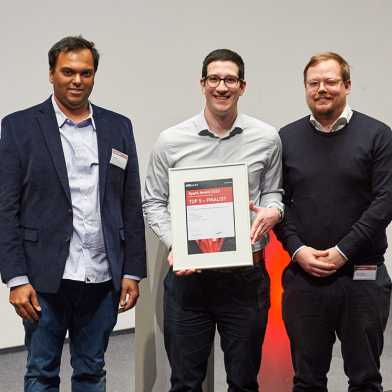
“Enhancing bispecific antibody therapies with healthy donor T-cells”: This groundbreaking work of Systems Immunology Lab head Sai Reddy and his team members Edo Kapetanovic, Rodrigo Vazquez-Lombardi and Cédric Weber had been nominated for the 2022 Spark Award. ETH Zurich gives this award to the most promising inventions that were filed as patents during the previous year. Reddy is a serial entrepreneur at D-BSSE.